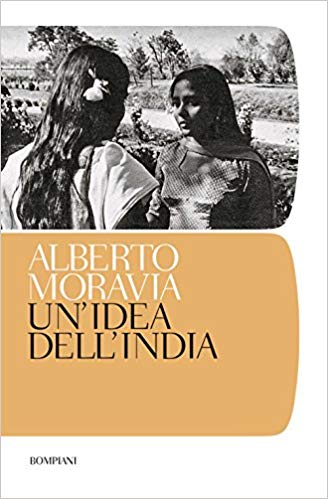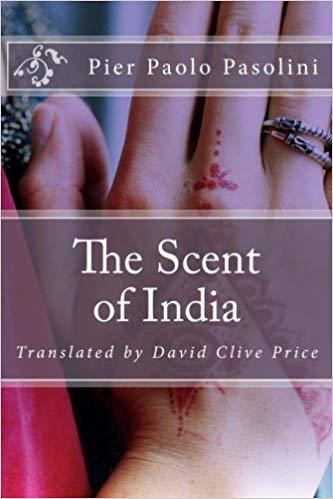What will happen as RSS challenges the Idea of India
In the backdrop of the views on India by two Italian travel writers, author-commentator Ajaypal Singh Brar decries the attempts to foist majoritarianism-based unity culture by the RSS and advocates that the minorities have no choice but to fight back, tooth and nail.
![In the backdrop of the views on India by two Italian travel writers, author-commentator Ajaypal Singh Brar decries the attempts to foist majoritarianism-based unity culture by the RSS and advocates that the minorities have no choice but to fight back, tooth and nail. ONCE UPON A TIME, TWO ITALIAN WRITERS go on vacation together in India, and each writes a book about his travels. One sees in India only what is different and the other only what is the same. […]](https://www.theworldsikhnews.com/wp-content/uploads/2019/10/Hindutva-Flag-360x188.jpg)
ONCE UPON A TIME, TWO ITALIAN WRITERS go on vacation together in India, and each writes a book about his travels. One sees in India only what is different and the other only what is the same.
The one writer, Alberto Moravia, titles his book An Idea of India (Un’idea dell’India) and tries to explain how different India is, but he is frustrated that he can grasp it only in the most abstract, metaphysical terms and through a series of tautologies.
The experience teaches him why Europeans are Europeans and Indians are Indians, but that is so hard to capture in words. The difference of religion, he thinks, will help him put his finger on it. India is the land of religion par excellence, he explains. Not only are its religions different than ours but also in India religion envelops all of life. The religious idea completely permeates the experience.
It is time the fascist forces in this land realise that the land and its people cannot be turned into a monolithic society adhering to their narrow version of Hindutva but the recognition of an open network of singularities that links together on the basis of the common they share and the common they produce can make harmonious co-existence possible, workable and enjoyable.
Indians go about their daily lives living their religions in countless strange and incomprehensible rituals. But this notion of a living religious idea, he finds, does not really capture the difference either. The difference of India is much more than that. In fact, this extreme difficulty of expressing it proves to him that the difference of India is ineffable. “My fellow Italians, I cannot describe India to you. You must go there and experience its enigma yourself. All I can say is, India is India,” he concludes.
 Pier Paolo Pasolini titles his book ‘The Scent of India’ (L’odore dell’India) and tries to explain how similar India is. He walks the crowded streets at night in Bombay, and the air is filled with odours that remind him of home: the rotting vegetables leftover from the day’s market, the hot oil of a vendor cooking food on the city’s sidewalks, and the faint smell of sewage.
Pier Paolo Pasolini titles his book ‘The Scent of India’ (L’odore dell’India) and tries to explain how similar India is. He walks the crowded streets at night in Bombay, and the air is filled with odours that remind him of home: the rotting vegetables leftover from the day’s market, the hot oil of a vendor cooking food on the city’s sidewalks, and the faint smell of sewage.
The writer comes upon a family conducting an elaborate ritual on the riverbank, making offerings of fruit, rice, and flowers. This is not new to him either. The peasants back home in Friuli have similar customs, ancient pagan rituals that have survived for ages. And then, of course, there are the boys. The writer talks playfully in broken English with groups of boys who congregate on street corners.
Eventually, in Cochin (Kochi) he befriends Ravi, a poor, laughing orphan who is continually tormented and robbed by older boys. Before leaving the town the writer convinces a Catholic priest with the promise of sending money from Italy to take the boy in and protect him, just as he would have done back home. All of these boys, the writer finds, are just like the boys in every poor neighbourhood of Rome or Naples. “My fellow Italians, Indians are just the same as us,” he concludes. In his eyes, in fact, all the differences of India melt away and all that remains is another Italy.
It makes you wonder if the travel companions even saw the same country. In fact, although polar opposites, their two responses fit together perfectly as a fable of the two faces of Eurocentrism: “They are utterly different from us” and “They are just the same as us.” The truth, you might say, lies somewhere between the two-they are somewhat like us and also a little different-but really that compromise only clouds the problem.
Neither of the two Italian writers can escape the need to use European identity as a universal standard, the measure of all sameness and difference. India, however, is not merely different from Europe. India (and every local reality within India) is singular—not different from any universal standard but different in itself.
If the first Italian writer Alberto Moravia could free himself of Europe as a standard,  he could grasp this singularity. This singularity does not mean, however, that the world is merely a collection of incommunicable localities. Once we recognize singularity, the common begins to emerge. Singularities do communicate, and they are able to do so because of the common they share. We share bodies with two eyes, ten fingers, ten toes; we share life on this earth; we share capitalist regimes of production and exploitation; we share common dreams of a better future. Our communication, collaboration, and cooperation, furthermore, not only are based on the common that exists but also, in turn, produce the common. We make and remake the common we share every day.
he could grasp this singularity. This singularity does not mean, however, that the world is merely a collection of incommunicable localities. Once we recognize singularity, the common begins to emerge. Singularities do communicate, and they are able to do so because of the common they share. We share bodies with two eyes, ten fingers, ten toes; we share life on this earth; we share capitalist regimes of production and exploitation; we share common dreams of a better future. Our communication, collaboration, and cooperation, furthermore, not only are based on the common that exists but also, in turn, produce the common. We make and remake the common we share every day.
Today’s world is a paradox! While, the recently concluded elections in Canada has shown us how a nation with vast swathes of immigrants from diverse nationalities could grasp this dynamic relationship of the common, our own home-grown organizations such as RSS -Rashtriya Swayamsewak Sangh and its offshoots advocate the turning of the entire land into one monolithic singularity in the name of Hindutva, thus destroying the garden full of myriad cultures, nationalities and religious ideologies that has been celebrated as the Idea of India or perhaps as the second Italian author Pier Paolo Pasolini puts it, the Scent of India.
It is time the fascist forces in this land realise that the land and its people cannot be turned into a monolithic society adhering to their narrow version of Hindutva but the recognition of an open network of singularities that links together on the basis of the common they share and the common they produce can make harmonious co-existence possible, workable and enjoyable.
It is not easy for those who stand for the Idea of India, which is diverse and vibrant to challenge the brute bulldozer of Hindutva forces, yet despite the attempts to crush under its momentum and weight the dynamism of diversity, challenge they must. What will happen if the Idea of India dies?
